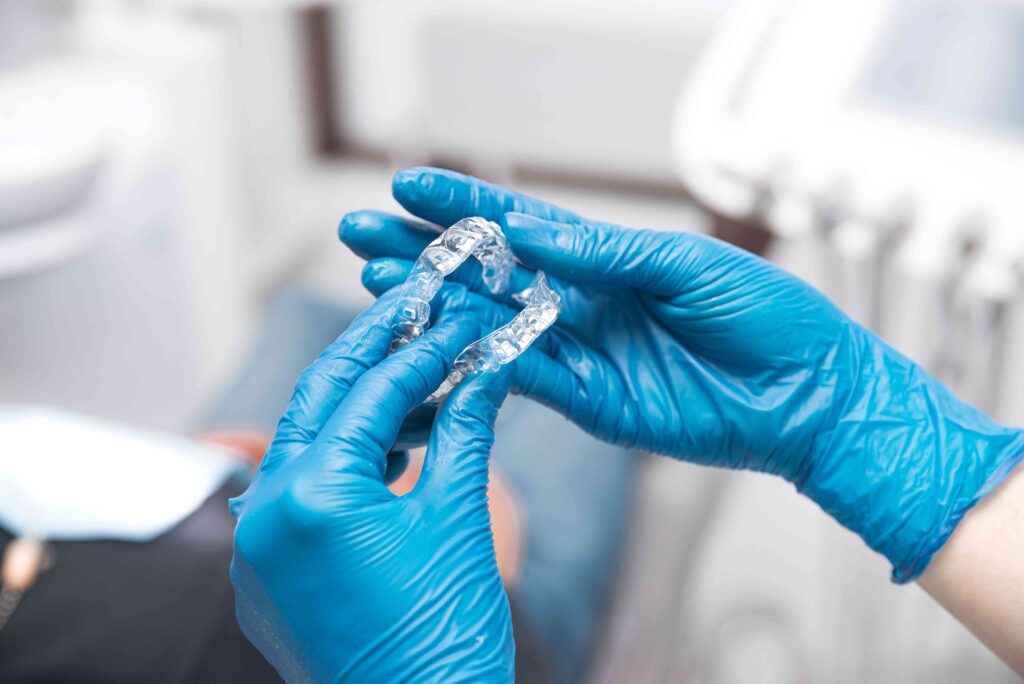
Do you notice that your jaw clicks when you chew your food or open your mouth to talk? Have you experienced frequent lockjaw and morning headaches? This likely means that you have TMJ disorder. This condition is common and can be frustrating when it comes to your daily activities. Fortunately, there are treatment options available to offer you relief. Read on to learn more about TMJ disorder symptoms and how Invisalign may be able to help.
What Is TMJ Disorder?
TMJ is short for temporomandibular joint. This is the joint that is located between your skull and lower jaw, allowing for your mouth to open and close with ease. However, when this joint isn’t functioning properly, this is called TMJ disorder. This can result in pain and other symptoms. Here are some of the most common ones:
- Headaches: TMJ disorder is one of the most common underdiagnosed cases of frequent headaches. When the jaw muscles are tense, strained, and overworked, the nearby muscles in your head can become affected.
- Earaches: Because the TMJ is located so close to the ears, having a dysfunctional joint can result in ear pain.
- Face/Jaw Pain: Jaw stiffness can pain are the most common symptoms associated with TMJ disorder. It can be difficult to chew comfortably and result in lockjaw. Pain can range anywhere from a constant, dull ache to sharp pain.
- Bruxism: Bruxism is when one grinds and/or clenches their jaw, usually during sleep. This can overwork the jaw muscles and wear down the enamel.
Can Invisalign Help TMJ Disorder?
Invisalign is an orthodontic treatment that uses a series of clear aligners to gradually reposition the teeth over time. While they are in your mouth, the aligners act as a cushion between your upper and lower teeth, preventing them from grinding against each other. Because of this, Invisalign can help to reduce some of the symptoms of TMJ disorder, including jaw pain and facial fatigue, throughout the duration of your treatment.
Once you complete your treatment, having a properly aligned bite can help to minimize or eliminate symptoms of TMJ disorder. Ultimately, this treatment can reprogram the jaw muscles to reduce grinding, reducing your overall discomfort.
If you have been struggling with symptoms related to TMJ disorder, you may want to talk to your dentist about Invisalign. It may be the solution to bring you relief!
About the Practice
At Richardson Orthodontics, Dr. Tamara Jones and Dr. Stephanie Amerson work together to treat patients in the Richardson area. With their combined experience and expertise, they can meet all of your orthodontic needs. To learn more about Invisalign or TMJ disfunction, or to schedule a consultation, visit their website or call (972) 238-7101.

